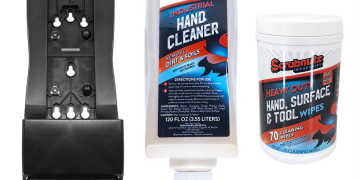The skincare industry offers a dizzying array of products, with natural and synthetic formulations often positioned as opposing forces. On one side, natural skincare touts plant-based ingredients and minimal processing, appealing to those seeking simplicity and sustainability. On the other, synthetic skincare emphasizes cutting-edge science, offering powerful and targeted solutions for a range of skin concerns. Deciding which is better for you depends on your skin’s unique needs, personal preferences, and specific goals. Understanding the benefits and drawbacks of each approach can help you make an informed decision.
What Defines Natural Skincare?
Natural skincare products are derived from ingredients found in nature, such as plants, minerals, and animal by-products like beeswax. These products are often marketed as clean, non-toxic, and eco-friendly. While the term “natural” lacks strict regulatory oversight, it generally implies minimal synthetic processing.
Key Characteristics of Natural Skincare
- Ingredient Sources: Botanical extracts, essential oils, clays, and butters.
- Focus on Purity: Free from artificial fragrances, preservatives, and chemicals like parabens and sulfates.
- Eco-Friendly Packaging: Many natural brands prioritize sustainable materials and recyclable packaging.
Benefits of Natural Skincare
- Gentle on Skin: Many natural products are formulated without harsh chemicals, making them suitable for sensitive skin types.
- Rich in Antioxidants: Ingredients like green tea, aloe vera, and rosehip oil are packed with antioxidants that fight free radicals and reduce inflammation.
- Eco-Conscious: Sustainable sourcing and biodegradable formulations align with environmentally friendly values.
Limitations of Natural Skincare
- Shorter Shelf Life: Without synthetic preservatives, natural products may spoil faster.
- Allergic Reactions: Botanical ingredients like essential oils can cause irritation or allergic reactions in some individuals.
- Inconsistent Efficacy: Natural ingredients may lack the potency or stability of their synthetic counterparts, requiring longer periods to see results.
What Defines Synthetic Skincare?
Synthetic skincare products rely on lab-engineered ingredients to deliver precise and targeted results. These formulations often incorporate active ingredients like retinol, peptides, and hyaluronic acid, which are designed to address specific concerns effectively.
Key Characteristics of Synthetic Skincare
- Lab-Engineered Ingredients: Includes both man-made and bio-identical compounds.
- Advanced Technology: Utilizes cutting-edge research to optimize ingredient stability and efficacy.
- Broader Range of Actives: Can include potent ingredients that are difficult to derive naturally.
Benefits of Synthetic Skincare
- Highly Effective: Synthetic actives, such as vitamin C derivatives and ceramides, are often more stable and effective than natural alternatives.
- Customizable Formulations: Lab-developed products allow for precise targeting of concerns like acne, hyperpigmentation, and aging.
- Longer Shelf Life: Synthetic preservatives help maintain product integrity over time.
Limitations of Synthetic Skincare
- Potential Irritants: Harsh chemicals, artificial fragrances, and dyes can irritate sensitive skin.
- Environmental Concerns: Non-biodegradable ingredients and excessive packaging may have a negative environmental impact.
- Perceived Toxicity: Many consumers worry about the long-term effects of synthetic chemicals, although most are deemed safe by regulatory bodies.
Comparing Natural and Synthetic Skincare
Performance and Efficacy
- Natural Skincare: While gentle and nourishing, natural products may lack the potency needed for dramatic results, particularly for conditions like deep wrinkles or severe acne.
- Synthetic Skincare: Offers faster and more noticeable results due to the concentration of active ingredients.
Safety and Sensitivity
- Natural Skincare: Generally free from synthetic irritants, but some individuals may react to essential oils or botanical extracts.
- Synthetic Skincare: May cause irritation in sensitive skin, especially if products contain harsh chemicals or overly strong actives.
Sustainability
- Natural Skincare: Focuses on sustainable sourcing and eco-friendly packaging, appealing to environmentally conscious consumers.
- Synthetic Skincare: Advances in green chemistry are improving the sustainability of synthetic products, but traditional formulations often rely on non-renewable resources.
Choosing the Right Skincare for Your Needs
Selecting between natural and synthetic skincare comes down to your individual skin type, concerns, and lifestyle preferences. Below are some guidelines to help you decide.
When to Choose Natural Skincare
- Sensitive Skin: If your skin reacts to synthetic chemicals, natural products may be a gentler alternative.
- Eco-Conscious Values: For those prioritizing sustainability and clean ingredients, natural skincare aligns with ethical goals.
- Daily Maintenance: Ideal for maintaining healthy skin with nourishing, gentle formulations.
When to Choose Synthetic Skincare
- Targeted Treatments: For specific issues like acne, hyperpigmentation, or deep wrinkles, synthetic products often provide faster results.
- Advanced Formulations: If you prefer cutting-edge science and clinically tested ingredients, synthetic skincare offers a broader range of solutions.
- Durability: Synthetic products are less likely to spoil quickly, making them convenient for infrequent users.
Combining Natural and Synthetic Skincare
You don’t have to choose one approach exclusively. Many people find success by blending natural and synthetic products to create a balanced routine.
Sample Routine:
- Morning:
- Cleanse with a natural, gentle face wash.
- Apply a synthetic vitamin C serum for brightening and antioxidant protection.
- Moisturize with a natural cream rich in shea butter or jojoba oil.
- Use a synthetic sunscreen with broad-spectrum protection.
- Evening:
- Remove makeup with a natural oil cleanser.
- Treat with a synthetic retinol serum for anti-aging.
- Apply a natural aloe vera gel to soothe and hydrate.
- Weekly:
- Exfoliate with a natural sugar scrub.
- Use a synthetic peptide mask for targeted firming.
Reading Labels and Ingredients
Regardless of your choice, understanding product labels is crucial. Here’s how to decode them:
- Key Ingredients: Look for active ingredients listed near the top of the label, as these are present in the highest concentrations.
- Avoid Harmful Additives: Watch out for parabens, sulfates, and artificial fragrances if you have sensitive skin.
- Certifications: Seek certifications like USDA Organic for natural products or dermatologist-tested claims for synthetic options.
Trends Shaping the Future of Skincare
As the natural and synthetic skincare debate evolves, several trends are influencing the industry:
- Hybrid Formulations: Products combining natural and synthetic ingredients to deliver the best of both worlds.
- Clean Science: A focus on safe, effective synthetic formulations with minimal environmental impact.
- Personalized Skincare: Customizable routines based on individual skin needs and preferences.
- Ingredient Transparency: Greater emphasis on clear labeling and ethical sourcing.
Natural and synthetic skincare each offer unique advantages, and the best choice ultimately depends on your personal priorities and skin concerns. By understanding the strengths and limitations of each, you can build a skincare routine that supports your goals and enhances your natural beauty.










